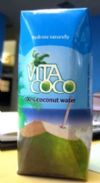|
Dave Ellis has an encyclopedic knowledge of nutrition and possesses an uncanny ability to distill complicated scientific information into succinct, sound advice for the rest of us. For 27 years, Ellis, a registered dietitian and Certified Strength & Conditioning Specialist, has worked with collegiate and professional teams across the country. He created his three-step Fueling Tactics system years before the government unveiled the food pyramid. His plan focuses on keeping athletes' immune systems up with plenty of produce and healthy oils, selecting fiber-rich starches and reducing fast-digesting sugars when inactive to provide more energy for training, and diversifying protein sources to promote quicker recoveries. Ellis has worked with every sport imaginable, from collegiate and professional football and baseball to NASCAR, yachting, weightlifting and even ice skating. Ellis regularly authors columns for multiple publications, including Training & Conditioning and USA Hockey Magazine, and is also a Master Level V USA Hockey Certified Coach. He is often described as a “nutrition coach” because of his ability to motivate athletes to eat well. Ellis recently spent an hour sharing his expertise with the dailySpark. From his Super Bowl victory, three National Championships and dozen Bowl victories and his time spent with legendary coaches--including his mentor, former Nebraska head football coach Tom Osborne--Ellis has amassed endless interesting stories and anecdotes. He shared a bit about his background, told some stories about his current projects, and related his work with pro and college athletes to the struggles we go through each day: eating enough vegetables, getting family members on board with a healthy lifestyle and knowing whom to believe when it comes to health and nutrition. Note from SparkGuy: "Dave is an amazing coach and person, we're fortunate to have him sharing his expertise and stories with SparkPeople members. I've met with Dave several times and his passion for helping people really shines through." DailySpark: I was amazed at how simple all this complicated nutrition info sounds. The way you explain this to athletes, it's in such simple terms that I feel like anyone would be able to understand. Dave Ellis: That's the goal. It was always the questions that the athletes fire at you and your ability to succinctly boil it down to cogent actionable thoughts that has made this (easy-to-follow plan) a product of my work. This was all born out of the trenches of athletics, where I had to--over and over again--answer similar questions. I process the latest information on one side of my brain and output in another--something they (athletes) had the attention span and time for. dS:You're a (Master Level V USA) Hockey Coach now. Has hockey always been your sport? Ellis: Hockey and baseball have been my two sports, but I've worked with just about everything that moves and can really appreciate what comes with each. dS: I read on your website that you help with sports such as NASCAR and yachting. I wondered how important nutrition is in sports like those, compared with football or basketball. Ellis: I was one of the strength coaches at the University of Wisconsin, and a buddy of mine was part of the crew for Bill Koch's (the 1992 America's Cup winner) yacht team. The majority of his team was former athletes from the University of Wisconsin who were training in Madison in the off-season, telling me about the environmental exposures on the boat and the workload. Some of the same principles for hydration that we would use for any athlete that gets any hot, humid sun exposures apply. We were going through the same timing issues with regards to eating for recovery, what to avoid pre-activity. There's a lot of carryover because of the duties they had to perform. In NASCAR, it's very different in that they are fighting the g forces against turning left all day around that track, so the shorter the track, the more grueling the race. There are a lot of environmental issues--a 230 degree motor right below your feet and often those races are in hot, humid climates. So they can't really stop, they have to be really careful about what they consume before and during the race because there's no getting out to hit the restroom. And they've got to stay focused. Any little loss in concentration at 200-plus miles an hour bumper-to-bumper traffic, you're done. That's what's great about private practice--the exposures that I get beyond the typical collegiate and Olympic sports. I've probably learned as much in the seven years since I went private as I did in my 20 years in the collegiate ranks. dS: When we first started talking via email, you were in Florida for baseball spring training. The next week you were back at home in Colorado and driving to work with the Broncos. How often do you travel? Ellis: There are some months where I travel every week, and then there are some where I get a little reprieve when I might only be on the road three or four times a month. I'm a 125,000-plus mile a year flyer. That's all domestic--we're in the top sports market in the world. dS: Now are you still working with the Broncos? I know that's where you were last week. Ellis: When I'm not on the road, I'll be ramping the Broncos' operation up. I've made very significant changes regarding their feeding operation, which is involving a revamping of a kitchen in addition to the serving process so that we can have a fresher product. There's been more of a satellite operation from caterers in the past. We're trying to improve the quality, the variety, the system with which we market the food to the guys, using the three-step approach to Fueling Tactics (Dave's proprietary system). (He also did body composition analysis and is extensively working with the team and staff to get the guys ready for the season.) dS: I saw in the video (Dave produced DVDs of his Fueling Tactics program for athletes and their support staff) that if athletes are following your plan--essentially just eating right--they don't need all the supplements and the powders and the pills that they see in the nutrition stores. Is that an uphill battle for you, to get athletes off those products? Ellis: The popular press has always been a bit of a nemesis in regards to active populations buying into a "can of Hope." The young, impressionable athlete looks at muscle magazines, looks at blogs, streamed video, whatever, and sees lean muscular bodybuilders more so than athletes. They (the athletes/models in magazine) validate using the supplements as key to why they are who they are--a muscular, lean high performer. There are a million reasons why a young athlete might say, "This sure seems like a simple solution." And the supplement industry has been cashing in forever. They take advantage of a underdeveloped young male who desperately wants to push that maturation curve. That's been their target forever. The supplement industry: There's no defending them. The bad news is they've been selling a lot of hype for a number of years. They always overpromise. Sadly, because it's an unregulated industry, most of the companies are more marketing entities than scientific good manufacturing driven companies. It's an awkward deal to teach an athlete the difference between a marketing concept and a (real supplement). The good news is that there's more pushback from health community, and athletes are becoming more savvy consumers. They're getting smarter about going to a health professional and talking about their desire to use a supplement before trying it. That allows the health professional--whether it's a strength coach, a dietitian or a trainer--someone around those programs who can at least say, "Jeez, you're an endurance athlete--creatine might not be a good idea." And we can at least rationalize the big picture. Supplements are not about trying to crutch your bad lifestyle. To them, we say, "You have a lot of dings in your nutritional armor. You need to fix these dietary issues before we even get to advanced fueling tactics involving supplements." dS: Tell me a little bit about what it was like to work with legendary football coach Tom Osborne. You were with him for three championships, right? Ellis: I spent my formative years, started out in that program at Nebraska, then moved on to Wisconsin, and back to what were really the most productive years with Tom, with regards to seeing him have everything he wanted around his program in place. Tom was ahead of the curve when it came to nutrition, no doubt about it. He single-handedly has been the most positive influence on my career. Tom was into (nutrition) because of some early diagnosed blood lipid issues. He was ahead of the curve in terms of his ability to (know how to) endure the grind that's demanded of a head coach at a Division I football school like Nebraska and balance with what he consumed--relative to his genetics. Some people just have a hand dealt to them that, in the end, while everybody else gets away with less activity, they can't. While everybody else gets away with more saturated fat and simple sugars, he couldn't. He also connected the dots that "if our kids are better rested and better fueled, we can push them harder in practice." There has never been a general in the history of battle that didn't figure out "we can only push these warriors so far. They can only march for so many days." Food and rest are fundamentals for anyone who fuels armies. It has to prepare them for conflict. It's maybe a bit of a militant perspective, but in the end, that's what we're doing with teams. We're trying to move them from Point A to B without wrecking them and making them endure what they need to to get better and also recover them so they can actually go out there and perform. Tom was way ahead of it all. He got it and committed to it. He took the money from the kickoff classic that he won against Penn State and built the first athletic department-funded and constructed training table that Nebraska had. ("Training Tables" are essentially cafeterias or food providers that the NCAA schools have to feed athletes. They serve later than dorms and food supply is enhanced over dorm foods, with a stronger commitment to nutrition, larger servings, fresh produce.) dS: Is it hard to sell athletes on the idea of eating a wide variety of vegetables and fruits each day? (The first step of Dave's program stresses the importance of fresh produce and healthy oils to ward off illness and bolster the immune system.) Ellis: I spend more time on step one than we do on any of the others. The athletes are enamored with protein and muscle, but in the end we spend more time on minimizing chances of getting run down and sick. There's no gaining or hanging on to your muscle if you're chronically the athlete who gets sick every time the weather changes or we travel. These athletes get a heavy dose of why step one foods are important because of their ability to keep us outworking the competition because we're not run down, we're not sick. (Dave also says that muscles can cope with workouts and recover faster if the antioxidant levels in the body are higher.) A muscle with better antioxidant status can deal with free radical insults and acid-base insults that happen when we train (something that aging muscle is less efficient at coping with, recently identified with muscle wasting). By the time you really coach a kid into (eating better), the kid will have said "all right, you sold me." Then you say, "well, show me the food you're going to try." They're literally highlighting the foods they like on the three step Fueling Tactics poster. Sadly there may not be a lot of foods highlighted on that list in the first step for athletes who have grown up eating on the fly at drive thrus. The same thing you see with SparkPeople members is that if you didn't grow up eating it, suddenly trying to make fresh produce palatable is a tough sell. Fruit will end up being the first point of intervention. It's going to be awhile before I can find a way to get dark greens and carrots down their throat. We'll let them add a little ranch dressing if that's what it takes! dS: Teams have people helping them when they're on the road and even at practice and home games. How do you teach them to stay on track when they're away from the field and the supervision of the nutrition staff? Ellis: Fueling Tactics DVDs (Fundamental) was created to send home with the athlete to educate whoever was helping feed them. We try to engage the families of athletes. One of the first things I do for teams--like the (Cleveland) Cavaliers (basketball team)--the first thing I did for (general manager) Danny Ferry was to bring in the spouses and significant others. We put a three-step buffet out and educated them with what we're trying to do with their athletes as we're eating. Sometimes my first exposures with a team revolve around assessing their frames to determine how much weight they can realistically carry. In reality I learn just as much from my clients as I bring to them. There is no school for what I do, it's all experienced based and I absolutely thrive on it. Dave has agreed to share some of his best tips with us, and he's going to be back to write a guest blog for us. Keep reading the dailySpark for more insight from America's Top Sport Nutrition Expert. |
Related Entries
More From SparkPeople
|









.png)













